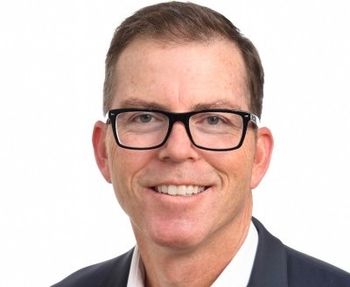
Johns Hopkins, Yale New Haven Health executives share lessons on leadership

They offered their perspectives on succeeding as leaders, building great teams and the importance of empathy.
San Diego - It’s hard to imagine a more difficult time to serve as a leader of a hospital or healthcare system.
Leaders with Johns Hopkins Health System and Yale New Haven Health offered some useful lessons from their own experience at the American Hospital Association Leadership Summit.
In a wide-ranging 45-minute discussion, they shared their perspectives on how leaders can get the best out of their workers and help their organizations succeed.
- Related story:
‘Focus on our culture and our people’
The value of e.q.
Now more than ever, health leaders must demonstrate emotional intelligence, or e.q., said Kevin Sowers, president of Johns Hopkins Health System and executive vice president of Johns Hopkins Medicine.
More than two years into the COVID-19 pandemic, Sowers said, “EQ becomes an incredible part of leadership.”
He said a key ingredient of leadership is “the importance of connecting the head and heart at all times.”
Don’t overmanage
Maran Borgstrom recently retired as CEO of Yale New Haven Health. She said leaders shouldn’t make the mistake of overmanaging. Executives should put together a good team, give them good direction and ensure that they have the resources to succeed.
Then, she said, “Let them work and make the music together.”
“You can’t overmanage people if you want them to be creative, self-respecting and respectful of the team.”
Find smarter people
Sowers said he doesn’t want “a group of people who think like me.”
“I want them to challenge me,” he said.
Leaders shouldn’t feel like they have to be the smartest person in the room.
“You want to surround yourself with people who are smarter than you,” Sowers said. “That should not threaten you.”
Build a diverse team
Both Sowers and Borgstrom stressed the importance of building a diverse team. Borgstrom said she was proud to build a diverse leadership team. It’s also a cohesive team.
“They find joy in working together,” she said. “They genuinely like one another and I think that’s important.”
Sowers said he has “been very purposeful” in making it clear he wants a diverse group around. “
“I have not apologized for that,” he said.
When key positions have opened up, Sowers said he has stressed to recruiting firms that he wants to see a diverse group of candidates.
Being accountable
Carolyn Carpenter, president of Johns Hopkins Health System’s National Capital Region, talked about the need for leaders to live up to the values they promote.
“What you’re really accountable is to walk the talk with your value,” she said. “Be accountable to the values you live every day.”
Carpenter shared a lesson she learned from Sowers when a promising candidate, a single Black mother, applied for a position. He wanted a commitment from other leaders that they would engage the new hire.
Carpenter said Sowers told them,“She’s going to need support, she’s going to need friends.” She was hired and has been an outstanding leader, Carpenter said.
Managing performance
Setting expectations and managing performance consistently is incredibly important, Sowers said.
“Coaching and mentoring becomes a part of the journey for leadership,” he said.
And that includes telling people when they need to improve, although it must be done respectfully.
“I will never yell… but I will tell you if you’re not performing well, and why you’re not performing well,” Sowers said.
Interviewing candidates
Lorraine Lee, Yale New Haven Health’s senior vice president of clinical operations, recounted a jarring story when interviewing a candidate for a leadership post.
Lee asked the candidate would get to know the members of the team. She recalled that the job candidate said she’d ask about her team’s dogs and kids, “so it seems like I care.”
“I was like, ‘Did you just say that out loud to me?’” Lee recalled.
The interview ended quickly.
Lee said when she interviews candidates, she tells them, “Your job today is to interview us.”
Don’t just fill an opening
Leaders should have an expectation before going to the job market to fill an opening, Sowers said. He stressed the value of looking at the gaps on the team.
Sowers said he also tests people for their values. He also said he would rather have a failed search than simply appointing someone for the sake of appointing them.
“I’ve made that mistake in my life and I’ll never do it again,” he said.
Keep a sense of humor
Leading a healthcare organization is very serious business, Borgstrom said.
But she said leaders need to have a sense of humor.
“I think a sense of humor is terribly important,” Borgstrom said. “This is very tough work and you have to find things to laugh about.”






























